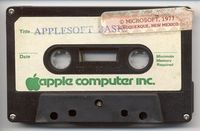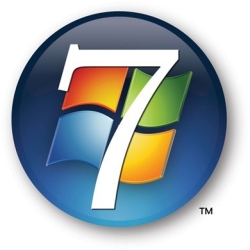
But something happened along the way. I call it second-mover advantage. Microsoft took over from Digital Research Corp. (ask your father what CP/M meant back in his day), Google took over from Yahoo. Oracle emerged after Ashton-Tate collapsed.
The difference between first-mover and second-mover advantage is that the second-mover has a Clue. They know what the key to the business is. They can scale. The industry grows exponentially, again-and-again. It matures.

The next move is for the second-mover to buy-up the small fry and dominate the market. The result of this is often a monopoly. Only the government has the power to take the monopolist on. In times like ours, when government is weak, the monopolist may get away with rolling everyone.
Open source can be more effective than even government in bringing competition to an established market. But Oracle showed how even open source can be beaten. Just buy up the open source companies, raise prices and slow development. Now anyone who might be interested in an open source alternative has to think twice, if it's coming from a company that, should it become successful, might itself become subject to a buy-out.
Open source calls this impossible, because you can fork. So you now have a general release of Drizzle, a fork of Oracle's mySQL database. Just as you now have LibreOffice, a fork of Oracle's OpenOffice.
This doesn't solve the problem, when you're facing second-mover advantage. In the case of OpenOffice, Oracle now has IBM's support. How is a non-profit foundation going to scale and compete effectively with that? The only people switching to LibreOffice are those with political motives. What happens when OpenOffice.org changes its formats, and seeks legal protection for those new formats? It's inevitable in any case that the two forks will diverge. Which do you think will move faster – the one with financing or the one without?

Given that we might get some corporate support. Someone might come in, offering Drizzle support for a good price. A market might develop, and someone might win second-mover advantage in the Drizzle market, either through control of the code copyright or simple good business sense.
At which point what is to stop Oracle from buying them? Even after all that work, such a company would cost pocket change for Oracle. Seat cushion money.
The alternative is to retain all rights, and financing, within a non-profit foundation, as LibreOffice promises. But how big can such a foundation grow? Big enough to be competitive?
The best way for open source to proceed, in the long run, is the way Hadoop did it, under a structure where there are several large companies in support of a foundation, with none dominating. That's how Eclipse works. It's how Apache works. The foundation acts like a treaty among nations, and if all the big players have the ability to monetize the code base, they all retain their financial incentive to stick together.
Can Apache or Eclipse take on LibreOffice and Drizzle? Would those projects be willing to be absorbed?
Questions worth asking.









